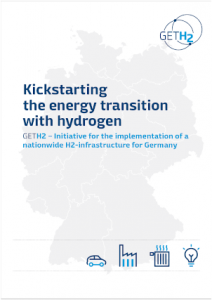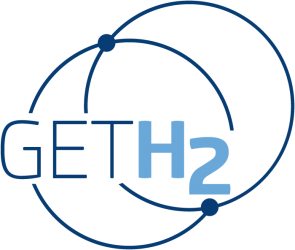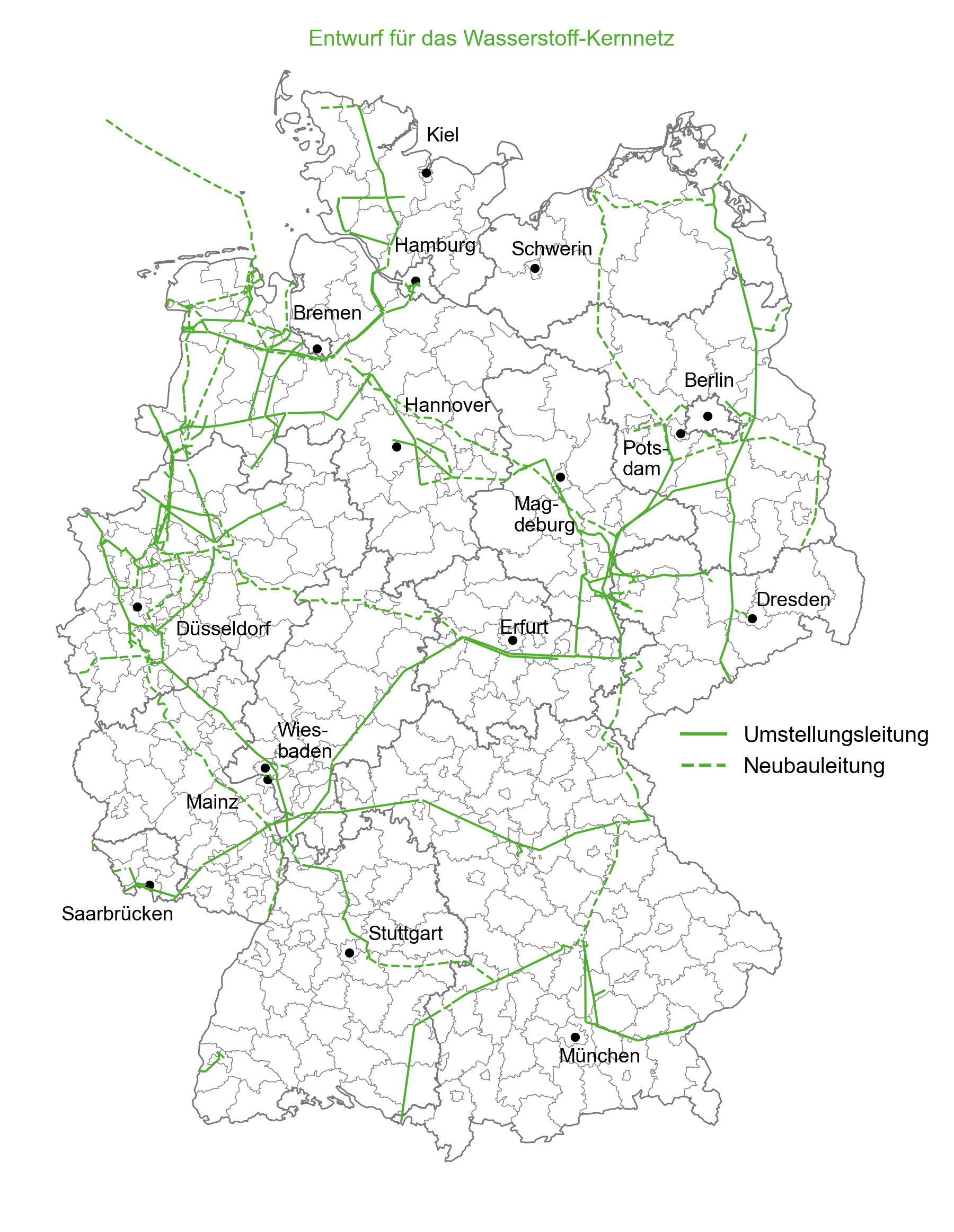The initiative – GET H2
GET H2 wants to establish the core for a nationwide hydrogen infrastructure and thus make the implementation of the energy transition possible. The initiative consists of by companies, municipalities and institutions that are actively committed to creating a competitive hydrogen market. In several projects, the partners of the initiative are driving forward the development of technologies for the production, transport, storage and purchase of green hydrogen (H2). They are planning the realisation of pipeline networks, electrolysis plants in the megawatt range and hydrogen applications in refineries, in the steel industry or in heavy-duty transport.
You are currently viewing a placeholder content from YouTube. To access the actual content, click the button below. Please note that doing so will share data with third-party providers.
More Information An overview of GET H2, the idea, the first project in Lingen and the necessary political support is available as PDF for download here:
An overview of GET H2, the idea, the first project in Lingen and the necessary political support is available as PDF for download here:
The plan – A nationwide hydrogen infrastructure for Germany
Germany wants to become greenhouse gas neutral by 2045. This is the goal of the Climate Protection Act. We can only achieve this with several building blocks:
- massively expand renewable energy generation (wind and solar)
- expanding the electricity infrastructure
- convert renewable electricity into hydrogen (power-to-gas, power-to-X)
- build up an infrastructure for hydrogen transport
With hydrogen we can not only store renewable energy. We can also use it where applications cannot be electrified: in refineries, chemical parks, the steel industry, or in heavy goods vehicle traffic. In this way, we can avoid generating CO2 in these areas as well.
Together with the transport and storage of hydrogen in existing infrastructures, this is a key to a successful energy transition. In the GET H2 initiative, we are getting the development of the necessary hydrogen infrastructure underway with the coupling of all sectors.
The hydrogen core network 2032
An efficient hydrogen infrastructure including cavern storage facilities is an important building block for a secure energy supply. On behalf of the Federal Ministry for Economic Affairs and Climate Protection the German transmission system operators have designed a hydrogen core network using existing gas infrastructure. The 9,700 kilometre-long network is to be built step by step by 2032.
In accordance with the German National Hydrogen Strategy, the core network connects the main planned production sites and import routes for hydrogen with steelworks, refineries, the chemical industry, power plants and other major consumers of hydrogen. The connection to cavern storage facilities is also taken into account. Planning for the expansion of the core grid will begin as early as 2024 as part of the Gas Network Development Plan in order to connect additional producers and consumers.
Graphic: FNB Gas e.V.

